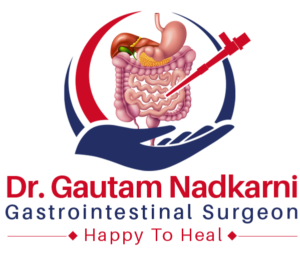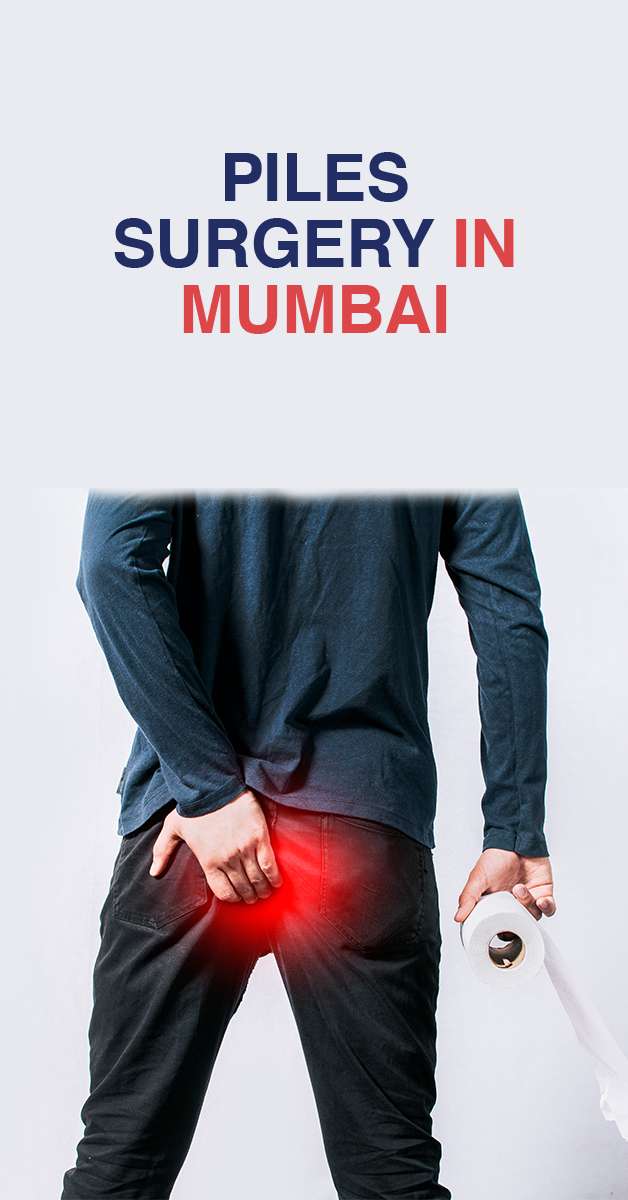
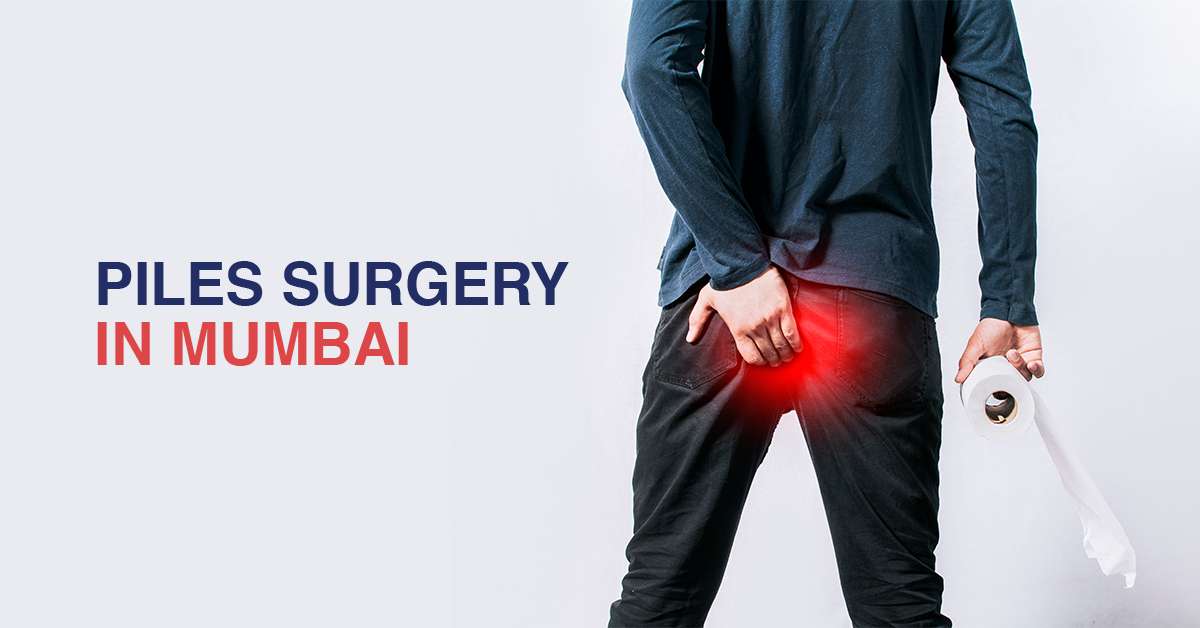
Revolutionise Your Piles Surgery in Mumbai with Best Piles Surgeon - Dr. Gautam Nadkarni
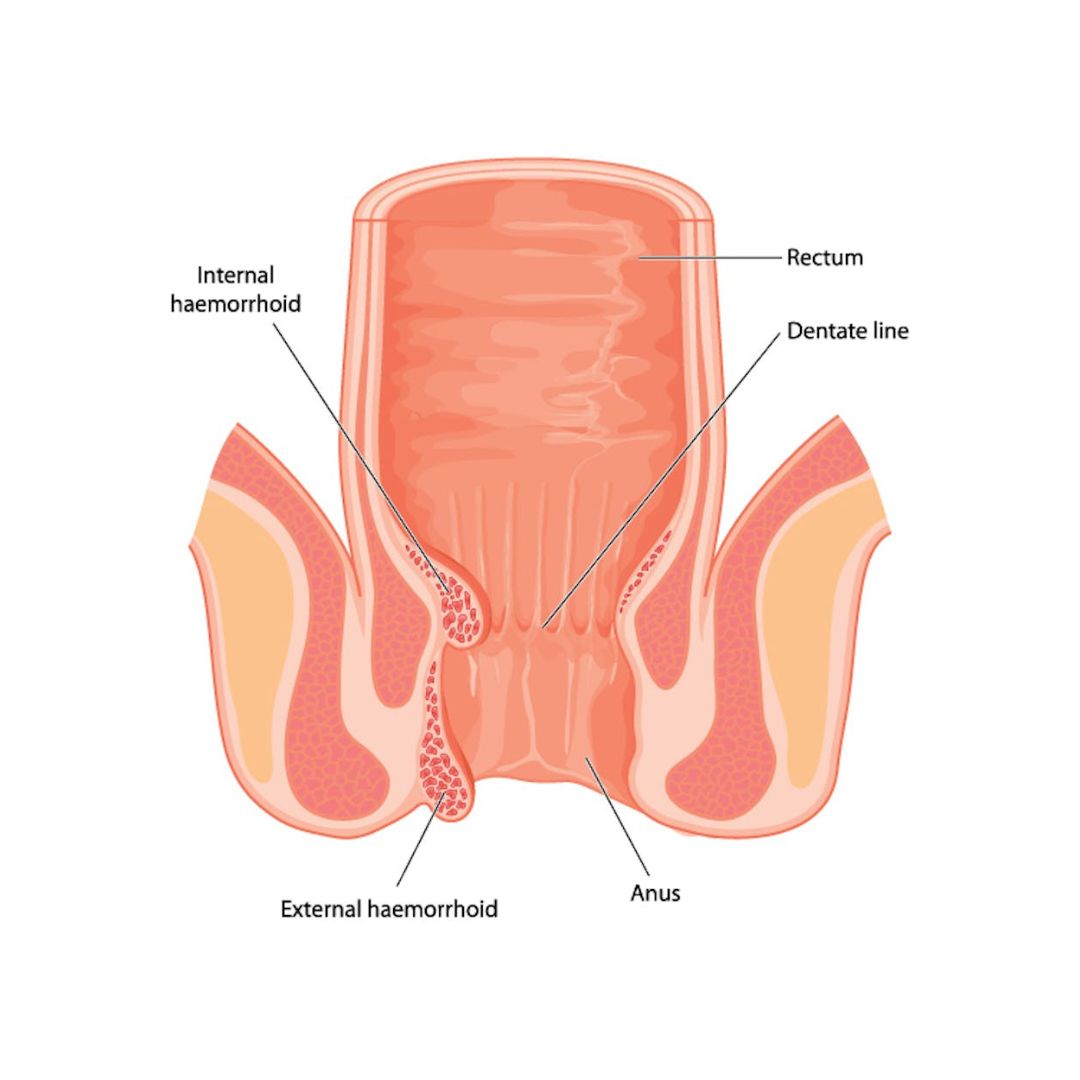
Are you suffering from the debilitating pain of piles? Don’t let it compromise your quality of life. Dr.Gautam Nadkarni, the leading Piles specialist surgeon in Mumbai, offers top-notch Piles surgery in Mumbai. Driven by a deep understanding of the agony and discomfort associated with piles, Dr. Gautam Nadkarni is committed to delivering holistic treatment solutions that effectively alleviate pain and enhance overall well-being.
What is Piles?
Piles, also known as hemorrhoids, are swollen veins in the rectal and anal region. They can be internal or external and can cause discomfort, itching, bleeding, and in severe cases, pain. Piles are a common condition and can be caused by various factors such as straining during bowel movements, sitting for extended periods of time, obesity, pregnancy, and aging. Piles can be treated with non-surgical methods such as dietary changes, increased fiber intake, and topical creams. In severe cases, surgical intervention may be necessary to provide relief from the symptoms.
Types of Piles
There are three types of piles or hemorrhoids, based on their location:
- Internal piles: These occur inside the rectum and cannot be seen or felt. Internal piles are usually painless but may cause bleeding during bowel movements.
- External piles: These occur outside the anus and can be felt as a lump or swelling around the anal region. External piles can be painful and may cause itching and discomfort.
- Mixed piles: These occur when both internal and external piles are present. Mixed piles can cause both pain and bleeding during bowel movements.
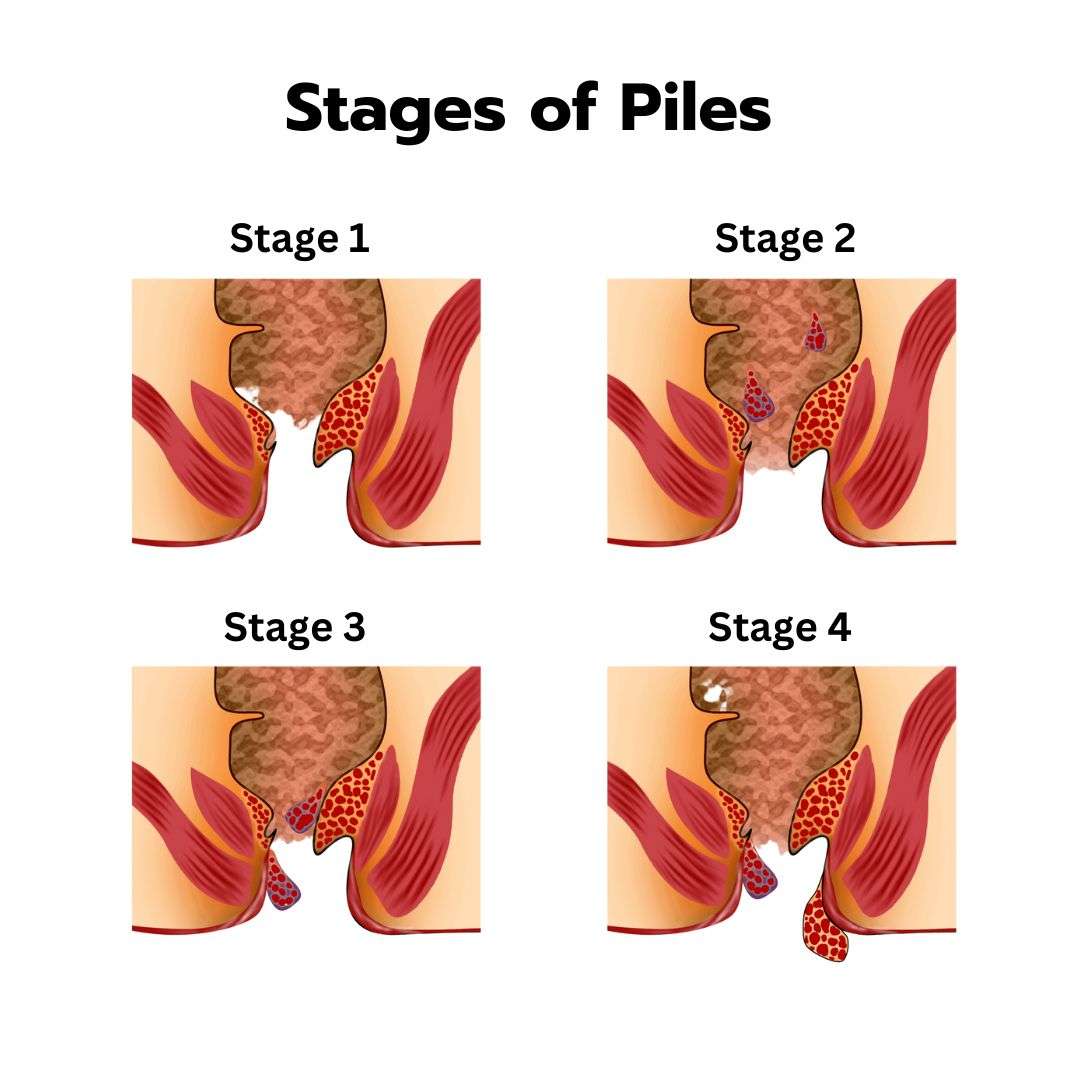
Stages of Piles
There are four stages of piles, also known as hemorrhoids, based on their severity and level of prolapse:
- Stage 1: In this stage, piles are small, and there is no prolapse or protrusion from the anus. The piles are located inside the rectum and are usually painless. The symptoms may include bleeding during bowel movements and mild discomfort or itching.
- Stage 2: In this stage, the piles prolapse or protrude during bowel movements but return to their normal position once the straining stops. The symptoms may include bleeding, discomfort, itching, and a feeling of incomplete bowel movement.
- Stage 3: In this stage, the piles prolapse and require manual reduction to push them back into the anus. The symptoms may include bleeding, discomfort, itching, pain, and difficulty in maintaining proper hygiene.
- Stage 4: In this stage, the piles prolapse and cannot be manually reduced, causing significant discomfort and pain. The symptoms may include bleeding, severe pain, itching, and difficulty in maintaining proper hygiene.
Causes of Piles
The exact cause of piles or hemorrhoids is not known. However, certain factors may increase the risk of developing piles, such as:
- Straining during bowel movements: This is the most common cause of piles, which puts pressure on the veins in the rectal and anal region, leading to swelling and inflammation.
- Sitting for extended periods of time: Prolonged sitting can increase pressure on the veins in the rectal and anal region, leading to the development of piles.
- Obesity and lack of physical activity: Being overweight and not engaging in physical activity can increase the risk of developing piles.
- Pregnancy and childbirth: Hormonal changes during pregnancy and pressure on the veins during childbirth can increase the risk of developing piles.
- Chronic constipation or diarrhea: Straining during bowel movements due to chronic constipation or diarrhea can cause piles.
- Aging: As a person ages, the tissues in the rectal and anal region may weaken, leading to the development of piles.
Symptoms of Piles
The symptoms of piles or hemorrhoids may vary based on the type and severity of the condition. Some common symptoms include:
- Itching, burning, and discomfort in the anal region
- Bleeding during bowel movements
- Pain and discomfort during bowel movements
- Swelling and inflammation in the anal region
- Mucus discharge
- Difficulty in passing stools
- A lump or swelling around the anus
- Inability to control bowel movements
Risk factor of Piles
- Straining during bowel movements: Putting excessive pressure on the rectal area while passing stools can strain the blood vessels and increase the risk of developing piles.
- Chronic constipation or diarrhea: Both conditions can lead to repeated straining during bowel movements, which can contribute to the development of piles.
- Prolonged sitting or standing: Spending long periods in a seated or standing position can increase pressure on the veins in the rectal area, making them more susceptible to swelling and inflammation.
- Obesity: Being overweight or obese can put additional pressure on the rectal veins, increasing the risk of developing piles.
- Pregnancy and childbirth: Hormonal changes during pregnancy and the pressure exerted on the rectal area during childbirth can contribute to the development of piles.
- Age: The risk of developing piles increases with age, as the tissues in the rectal area may weaken over time.
- Family history: Having a family history of piles may increase the likelihood of developing the condition.
Treatment for Piles
Piles or hemorrhoids can be treated with a variety of methods, depending on the severity of the condition. Some common treatment options include:
- Dietary changes: Consuming a high-fiber diet and increasing water intake can soften the stool and make bowel movements easier, reducing the strain on the anal region.
- Topical creams and ointments: Over-the-counter creams and ointments can help relieve pain, itching, and swelling. Some creams contain hydrocortisone, which reduces inflammation and swelling.
- Sitz baths: Soaking the anal region in warm water for 10-15 minutes can provide relief from pain and discomfort.
- Rubber band ligation: This procedure involves placing a small rubber band around the base of the piles to cut off the blood supply. The piles will then shrink and fall off within a few days.
- Infrared coagulation: In this procedure, a device is used to apply heat to the piles, causing them to shrink and reduce in size.
- Hemorrhoidectomy: This is a surgical procedure that involves removing the piles. It is usually recommended for severe cases that have not responded to other treatments.
- Laser surgery: This is a minimally invasive procedure that uses a laser to remove the piles.
Types of Piles Surgery
Some common types of piles surgery include:
- Conventional open surgery: This is the traditional method of piles surgery that involves making incisions in the anal region to remove the piles. The incisions are then closed with sutures.
- Stapled hemorrhoidectomy: In this procedure, a circular stapling device is used to remove the piles. The stapling device also helps to reposition the remaining tissue to reduce the risk of recurrence.
- Laser surgery: This is a minimally invasive procedure that uses a laser to remove the piles. The laser seals the blood vessels, reducing bleeding and promoting faster healing.
Benefits of Piles Surgery
Piles surgery, also known as hemorrhoidectomy, can offer several benefits for individuals suffering from severe or recurring hemorrhoids. Some of the potential benefits of piles surgery include:
- Relief from symptoms: Piles surgery aims to eliminate or significantly reduce the symptoms associated with hemorrhoids. This can include relief from pain, discomfort, itching, bleeding, and swelling in the anal area.
- Effective treatment: Piles surgery is considered an effective treatment option for severe or persistent hemorrhoids that have not responded to non-surgical treatments. It provides a more comprehensive and long-term solution to the problem.
- Improved quality of life: Hemorrhoids can greatly impact a person’s quality of life, causing discomfort, pain, and disruption in daily activities. By addressing the underlying issue through surgery, individuals can experience a significant improvement in their overall quality of life.
- Prevention of complications: Severe hemorrhoids can lead to complications such as thrombosis (blood clots), strangulation, or prolapse. Piles surgery can help prevent these complications by removing the swollen and inflamed veins, reducing the risk of further issues.
- Potential for faster recovery: While recovery time may vary depending on the individual and the specific surgical procedure, piles surgery can provide the opportunity for a faster recovery compared to living with persistent hemorrhoids. Following post-operative care instructions and lifestyle modifications can aid in the healing process.
Benefits of Laser Piles Surgery
Laser piles surgery, also known as laser hemorrhoidectomy, is a minimally invasive surgical procedure that utilizes laser energy to treat piles or hemorrhoids. Here are some potential benefits of laser piles surgery:
- Minimally Invasive: Laser piles surgery is a minimally invasive procedure that involves the use of laser energy to target and remove piles. It typically involves smaller incisions compared to conventional open surgery, resulting in less tissue trauma and potentially faster recovery.
- Reduced Bleeding: The laser energy used during the procedure cauterizes the blood vessels, reducing bleeding during and after the surgery. This can lead to less blood loss and a lower risk of complications associated with excessive bleeding.
- Precise and Targeted: The laser technology allows surgeons to precisely target and treat the affected area, minimizing damage to surrounding healthy tissue. This precision helps reduce the risk of complications and promotes quicker healing.
- Reduced Post-operative Pain: Laser piles surgery is associated with reduced post-operative pain compared to conventional surgery. The laser energy seals nerve endings, which can result in less discomfort and a shorter duration of pain after the procedure.
- Faster Healing: The precise and targeted nature of laser surgery helps promote faster healing. The laser energy seals blood vessels, reducing the risk of infection and facilitating the formation of healthy tissue.
- Shorter Hospital Stay: Laser piles surgery is often performed on an outpatient basis, meaning you may not require an overnight stay in the hospital. This can contribute to greater convenience and faster return to your daily activities.
- Potential for Quicker Recovery: Due to the minimally invasive nature of laser piles surgery and reduced tissue trauma, the recovery time may be shorter compared to traditional open surgery. However, individual recovery experiences may vary.
Precautions After Piles Surgery
After undergoing piles surgery, it is crucial to follow certain precautions to ensure proper healing and minimize the risk of complications. Here are some common precautions to consider:
- Follow Post-operative Instructions: Strictly adhere to the post-operative instructions provided by your surgeon. These instructions may include guidelines regarding diet, medication, wound care, physical activity, and hygiene. It is essential to follow them diligently for optimal recovery.
- Manage Pain and Discomfort: You may experience pain, discomfort, or swelling after piles surgery. Take prescribed pain medications as directed by your surgeon to manage pain effectively. Avoid self-medication or exceeding the recommended dosage.
- Maintain Proper Hygiene: Keep the surgical area clean and dry to prevent infection. Follow your surgeon’s recommendations regarding cleansing the area after bowel movements or using specialized wipes. Avoid using harsh soaps or perfumed products on the surgical site.
- Take Stool Softeners: To minimize strain during bowel movements and prevent constipation, your surgeon may prescribe stool softeners or laxatives. Take them as directed to ensure smooth and comfortable bowel movements.
- Dietary Modifications: Follow a fiber-rich diet and drink an adequate amount of water to promote regular bowel movements and prevent constipation. Include fruits, vegetables, whole grains, and fiber supplements as recommended by your healthcare provider.
- Avoid Straining: Refrain from activities that can put strain on the surgical area, such as heavy lifting, intense physical exertion, or prolonged sitting or standing. Straining can increase pressure on the surgical site and hinder the healing process.
- Gradual Resumption of Activities: While it is important to rest and avoid strenuous activities immediately after surgery, gradually reintroduce light physical activities as advised by your surgeon. Start with short walks and gradually increase your activity level as your healing progresses.
- Follow-up Appointments: Attend all scheduled follow-up appointments with your surgeon. These visits allow them to monitor your progress, assess the healing process, and address any concerns or complications that may arise.
Piles, or hemorrhoids, can be a distressing condition, but you don’t have to suffer in silence. Trust Dr. Gautam Nadkarni, the Best piles specialist doctor in Mumbai and Best Piles surgeon in Mumbai, for comprehensive and effective Piles surgery in Mumbai. With his expertise, experience, and patient-centered approach, he offers personalised care and tailored solutions for piles-related problems. Take the first step towards a pain-free future by contacting
If you are searching for a piles specialist doctor or the laser piles surgeon in Chembur, Santacruz, sion, Mumbai or any nearby location in Mumbai then look no further than the most experienced and renowned Piles specialist surgeon in Mumbai Dr. Gatuam Nadkarni.
Frequently asked Questions and Answers
If you experience symptoms such as itching, pain, bleeding during bowel movements, or discomfort in the anal region, it is advisable to consult a healthcare professional for a proper diagnosis.
Yes, in many cases, piles can be treated without surgery. Non-surgical treatment options include dietary changes, increased fiber intake, topical creams, sitz baths, and lifestyle modifications. However, severe or recurrent cases may require surgical intervention.
Consuming a high-fiber diet is beneficial for piles. Foods rich in fiber include fruits, vegetables, whole grains, legumes, and nuts. Drinking an adequate amount of water is also important to prevent constipation and promote smooth bowel movements.
Piles can often be effectively managed and treated with non-surgical methods such as dietary changes, lifestyle modifications, and topical medications. In some cases, surgical intervention may be necessary for severe or recurring piles that do not respond to conservative treatments.
The treatment options for piles depend on the severity of the condition. Non-surgical treatments include lifestyle changes, dietary modifications, topical creams, sitz baths, and procedures like rubber band ligation or infrared coagulation. In severe cases, surgical removal of piles may be required.
Piles can vary in severity, and their impact on individuals can differ. While piles are a common condition, they are generally not life-threatening. However, they can cause discomfort, pain, and affect the quality of life for some individuals. Seeking timely medical advice and appropriate treatment is important.
Piles themselves are not considered dangerous. However, they can cause significant discomfort, pain, and inconvenience. If left untreated or if complications arise, such as severe bleeding, thrombosis (clot formation), or strangulation of the piles, it can lead to more serious issues. Early intervention and appropriate treatment are important.
The decision to perform surgery for piles depends on the severity and symptoms experienced. Typically, surgery is considered for advanced stages of piles (e.g., stages 3 and 4) that cause persistent bleeding, pain, or do not respond to non-surgical treatments. Your healthcare professional will determine the most suitable treatment approach based on your specific condition.
Piles surgery is performed under anesthesia, so you will not feel any pain during the procedure. However, it is common to experience some discomfort and pain in the post-operative period. Your surgeon will provide pain medications to manage any discomfort.
The recovery time after piles surgery can vary depending on the type of surgery performed, the extent of the piles, and individual factors. Generally, it may take a few weeks to fully recover. However, it is important to follow your surgeon’s post-operative instructions for proper healing and optimal recovery.
The duration of piles surgery depends on the specific surgical procedure being performed and the complexity of the case. It can range from 30 minutes to a couple of hours. Your surgeon will provide you with more specific details regarding the expected duration of your surgery.
Piles surgery, like any surgical procedure, has its success rates. The success of the surgery depends on various factors, including the type and severity of the piles, the surgical technique used, and individual healing abilities. It is best to discuss the success rates
Yes, in many cases, piles can resolve or improve without the need for surgery. Non-surgical treatment options such as dietary changes, increased fiber intake, topical medications, sitz baths, and lifestyle modifications can effectively manage piles and promote healing. However, the effectiveness of non-surgical treatments depends on the severity and nature of the piles. It is important to consult with a healthcare professional for a proper evaluation and personalized treatment plan.
Untreated piles can worsen over time, causing persistent symptoms and increasing the risk of complications. Seeking medical advice is advisable to prevent complications and alleviate symptoms.
While piles laser surgery can provide relief, a complete cure within 3 days may not be realistic. Healing time varies, and it may take several weeks for full recovery. Follow post-operative instructions and consult your healthcare professional for a realistic expectation of the recovery timeline.

